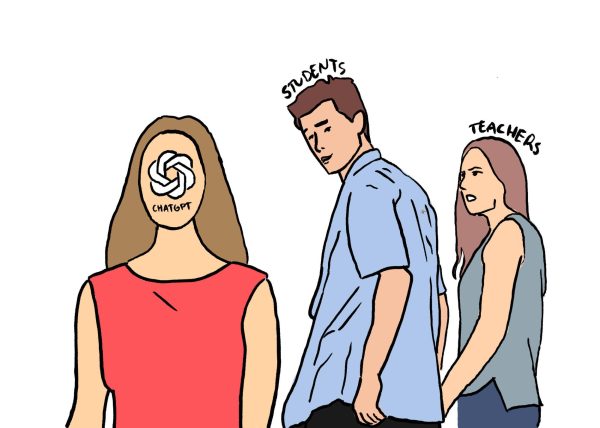The Gilded Bill
Testing bill claims to benefit students, fine print says otherwise

photo by Scott Keeler, Tampa Bay Times
It’s no secret the Florida Department of Education has been experimenting with different standardized tests in a mad dash to find the perfect testing cocktail for public education systems. From FCAT to PARCCS to the FSA and a packed menu of overthought EOCs, Florida students are constantly wondering what hoop they’ll have to jump through next.
Sen. Don Gaetz of northwest Florida hopes to provide more options for students and reduce the FSA’s monopoly over Florida’s standardized testing through the ratification of his new bill, SB 1360. Though the bill would be implemented statewide, the initial inspiration for SB 1360 was Seminole County and its complaints about the FSA’s faulty debut last year. This bill would allow districts to opt out of the infamous FSA and some EOC exams in favor of other nationally acclaimed tests such as the SAT, ACT or, oddly enough, certain industry certifications. Students in the third through eighth grades would take the ACT Aspire, a version of the ACT formatted for elementary and middle schoolers.
Unfortunately, students, parents, teachers and administrators are so fed up with standardized testing right now that this bill might seem like the system’s savior, but we must pay attention. We must seek long term improvement and resist the temptation of temporary relief from corrupt testing policies.
The first red flag is that the bill leaves district school boards the decision of whether or not to opt out of the FSA, meaning that a student might not even get to enjoy the few benefits of this bill if their county decides to stay on with the FSA. It is true that most district superintendents were just as disappointed with the FSA as the rest of us, but there is still that possibility. Plus, who is to say that the state won’t offer districts incentives for keeping the FSA?
If districts do approve these alternative rigorous assessments as replacements for tests such as the Algebra I, Biology and U.S. History exams, how will these alternative assessments accurately reflect the student’s understanding of the specific course material (not to mention GPA and grade calculation) when they only assess basic reading, writing and math skills?
This bill would still implement school grading and teacher evaluation based on student performance, which would be further compromised when not all students take the EOC, accounting for 30 percent of the student’s final grade and provides the base upon which teachers are evaluated. And if the FLDOE is so set on standardized testing, how will this bill affect their databases when each district has approved different tests for student selection? It is rather comical that the state hopes to further standardized testing through destandardization. It’s a lose-lose situation.
And this only scratches the surface of this bill’s flaws. I could go on about how we still don’t know how the new SAT format, implemented for the first time this month, factors into all this or how becoming an Associate Level Certified Technician might relate to the material taught in an Algebra II class in the slightest, but what is really scary, in light of all these uncertainties, is the Senate’s response to the bill. At a Senate Education Appropriations Committee workshop focused on Alternative Assessments on Wednesday, Jan. 13, Sen. Bill Montford even said, “I guess the question then is, well, why didn’t we do this already, or why are we even questioning doing it now?”
Yikes. And Senator Montford isn’t alone in his opinion. So far, the bill has gone unopposed in each Senate subcommittee to which it has been referred.
All in all, this bill may seem like it is working for the betterment of the success of individual students, but Gaetz is obviously drinking the standardized testing Kool-Aid. If Florida’s student population wasn’t having a collective nervous breakdown, I might even feel compelled to commend him for his effort to make a change, but I won’t. I want to see results, and I want to see results that have positive long term implications for Florida’s students.
The bottom line is that this bill looks appealing but is just playing into standardized test scores’ domination over Florida school systems and how classrooms are run. Teachers and administrators pressure 8-year-olds into performing better on these tests because their paychecks are on the chopping block, and this is no one’s fault but senators such as Gaetz, who wants to ride in like a white knight professing big dreams for toppling the FSA’s monopoly. It’s a flawed system that we can’t just keep adding to. Something needs to change.
Your donation will support the student journalists of Hagerty High School. Your contribution helps us publish six issues of the BluePrint and cover our annual website hosting costs. Thank you so much!






